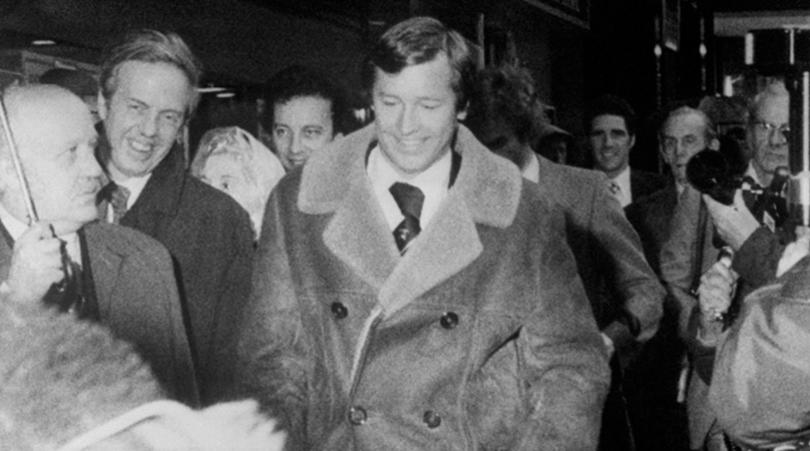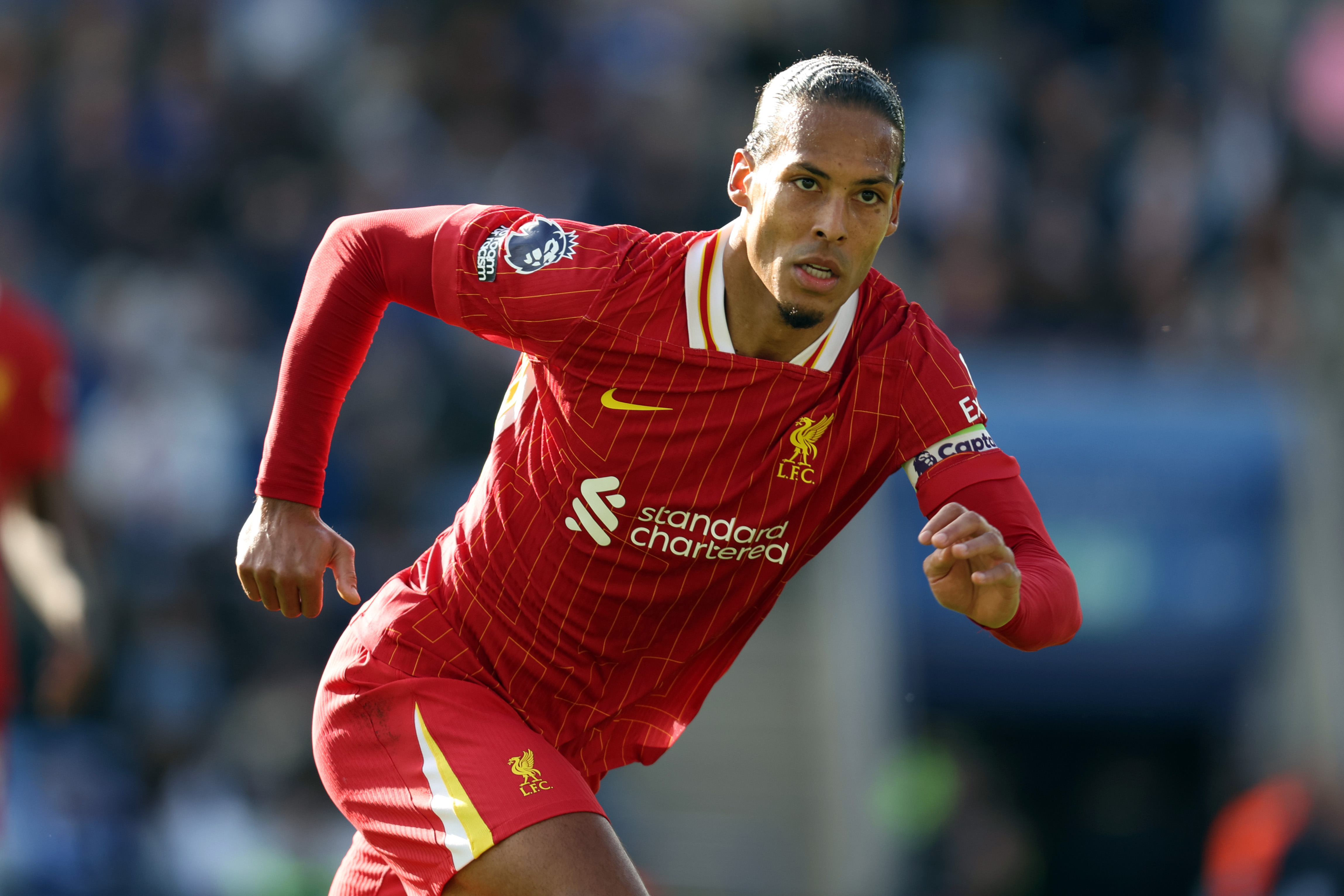Sergei Baltacha: English football's first Soviet star – who loved Suffolk
As Russia prepare to kick off the 2018 World Cup on home turf, Richard Woodall recalls the first Soviet international ever to play in the Football League – and who took Blighty to his heart
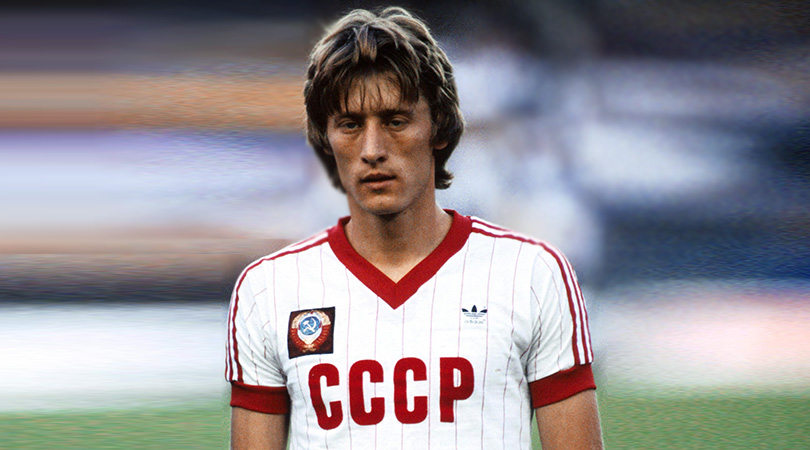
On June 25, 1988, Holland met the Soviet Union in the final of the European Championship. It was a heavyweight bout with the two best coaches, Rinus Michels and Valeri Lobanovsky, going toe-to-toe in a game forever associated with Marco van Basten’s balletic volley in Munich’s shimmering Olympic Stadium.
It was also a significant day for Soviet defender Sergei Pavlovich Baltacha. By the end of that year, as an integral part of four Dynamo Kiev league titles and their 1986 Cup Winners’ Cup glory, he’d swap the Soviet Union for Suffolk based on the 22 minutes he’d played in the 2-0 defeat to the Dutch – he just didn’t know it yet…
Soviet Union leader Mikhail Gorbachev was ushering in the new era of Glasnost, a Cold War-thawing policy of increased openness and transparency behind the Iron Curtain. For the first time, the best and most experienced Soviet footballers could leave the motherland to showcase their talent abroad. There was even a list of players who were permitted to depart for the West. Deemed worthy of reward for services to their country, all were 30 or over and regular internationals.
“There were a couple of other players we were interested in but Sergei was the one we wanted most,” Ipswich manager John Duncan revealed in his newspaper column. “I was impressed with him and had seen video tapes – his record spoke for itself.”
Hello, Suffolk
In December 1988, after three days of intense negotiation in Moscow involving Duncan, director David Sheepshanks and Baltacha, the Tractor Boys got their man. Ipswich transferred the £200,000 fee to Sovintersport – the government agency responsible for deals – who in turn paid Dynamo Kiev and then Baltacha.
Bound by maximum wage regulations, Town weren’t able to make the Football League’s first Soviet footballer the club’s highest earner, but did provide a house and car – fittingly a Russian-made Lada Samara 1300 courtesy of a local dealer in Bridlington.
Get FourFourTwo Newsletter
The best features, fun and footballing quizzes, straight to your inbox every week.
The 30-year-old was huge news in East Anglia. “When my interpreter translated the first question at my press conference – ‘Sergei, are you a communist?’ – I just thought it was a joke,” he explains to FFT. “The Ipswich chairman, Patrick Cobbold, then intervened and said: ‘Ipswich Town is a football club, Sergei is a footballer – if you want to talk politics, please leave and go elsewhere.’
“I appreciated it – the Cobbold family made Ipswich such a special club, and that particular gesture from him made me feel very welcome.”
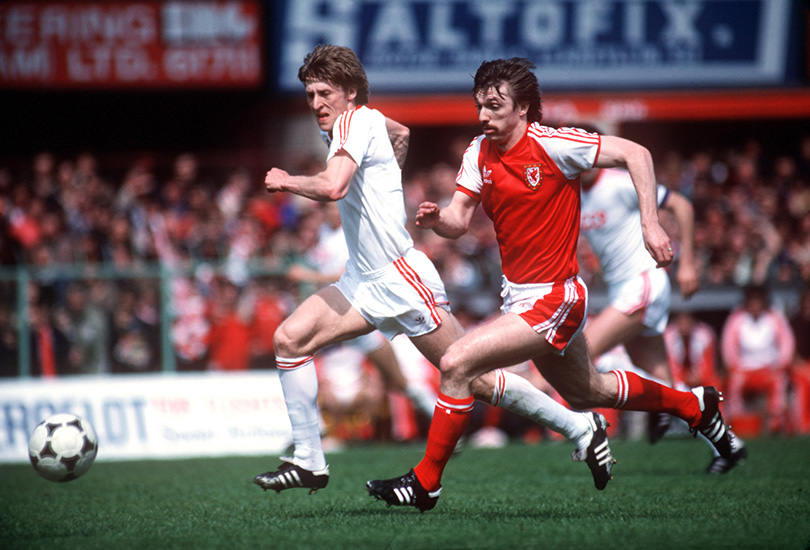
It was a strange time for a footballer to emerge from behind the Iron Curtain.
“When I arrived at Heathrow airport in early 1989, it was the same time as the European Figure Skating Championships and I thought all the television cameras were there for the Soviet team arriving.
“I thought I’d wait for all the skaters to go on ahead of me to clear the way, but the TV cameras stayed very close to me and I didn’t understand why. I’d go one way and then the other, and each time the cameras would follow.”
Sergei agreed an 18-month deal with a six-month break clause inserted into it – something the club told reporters was because of “possible social differences and the uniqueness of the situation”.
Not that it really mattered – Baltacha had big pedigree, winning the Under-20 World Cup in 1977, the U21 Euros three years later and bronze at the Olympics, in addition to his sackful of honours with Kiev. For a mid-table second-tier outfit recovering from their early-80s success under Bobby Robson, this was something of a coup for the Tractor Boys.
Big news
So keen were Ipswich fans to get a first look, more than 1,000 turned up to see Sergei’s maiden run-out for the reserves against Southampton – more than three times the average attendance. How did the Second Division’s rough-and-tumble measure up to Lobanovsky’s passion for intricate passing and computer-based approach to statistics?
“I knew a little about Ipswich because I’d faced Scotland and John Wark at the 1982 World Cup and, in 1981, Ipswich had lifted the UEFA Cup,” says Baltacha. “After Euro '88, Lobanovsky phoned me and said there were several clubs from Italy, Switzerland and England interested in signing me.
“I was 30 and had been with Dynamo Kiev for 12 years. As soon as I’d heard of the interest from Ipswich, I wanted to go and play in England. It was the home of football, and although I didn’t speak any English, I knew that was where I wanted to be.”
Baltacha could demonstrate football’s universal language. He found the net on his debut in a 5-1 home win over Stoke in January 1989, despite having to play in an unfamiliar right-midfield role in an injury-hit side.
“With Dynamo Kiev I’ve played in front of a crowd of 100,000,” he commented after the emphatic victory. “But for me, the 15,000 Ipswich crowd made just as much noise today.”
To celebrate the debut heroics, Sergei invited his team-mates to his house for a party, where many were disappointed to learn the host drank nothing stronger than lemonade. More cultural differences followed.
“I used to fly everywhere for games in the Soviet Union, sometimes to Georgia or somewhere,” Baltacha recalls. “I remember all the lads complaining about a five-hour bus journey up to Hull. I said to them: ‘Only five hours? You try a seven-hour flight with another couple of hours either side waiting.’
“I actually ended up seeing my family more when I moved to England. It was enjoyable. Also, the dressing room was a lot different to what I’d been used to – everybody was focused and the players wouldn’t talk too much beforehand. The move abroad allowed me to see a totally different mentality.”
Tougher times
On the pitch, though, Sergei struggled to adapt, with gaffer Duncan persisting with him as a wide midfielder, instead of the cool sweeper that he’d recruited. A fiery Scot who was sacked by Ipswich in 1990 and became a teacher, before leading Second Division Chesterfield to the FA Cup semi-finals in 1997, Duncan couldn’t have been more different in his approach to Lobanovsky.
“When he came into the dressing room at half-time, I think I was expecting it to be quite like Lobanovsky’s style,” reveals Baltacha. “I thought he would be talking tactics, but he came in and swore loudly sometimes. I couldn’t speak English so didn’t understand what he was saying at first. People in Russia didn’t swear in public. People talk about pressure forcing it, but Lobanovsky managed at a World Cup and also for some big teams, and he never did.”
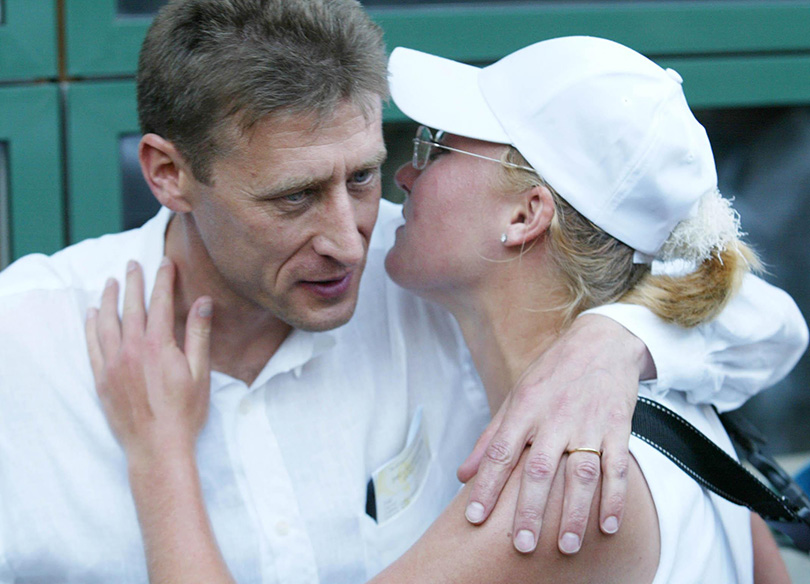
Keen to play as a sweeper once again, Baltacha moved north of the border and joined St Johnstone in 1990, retiring at Inverness Caledonian Thistle, whom he also briefly managed.
The Baltachas stayed in Blighty. Sergei became a PE teacher and now works for Charlton Athletic’s academy, easing the graduates’ pathway into senior football. His son, Sergei Jnr, featured for St Mirren and Scotland U21s, and daughter Elena was British tennis No.1 before her death from liver cancer in 2014. She was only 30, the same age as her father when he swapped Soviet Russia for Suffolk.
His crossing of the Iron Curtain paved the way for others including goalkeeper Dmitri Kharine, who moved to Chelsea in 1992, and Andrei Arshavin, a club-record signing for Arsenal in 2009.
“It’s interesting to look back at my own move from the USSR and to now see how the other Soviet players have followed,” says Baltacha. “It’s nice to have opened up a way for that.”
World Cup Wonderland: stories, interviews and more
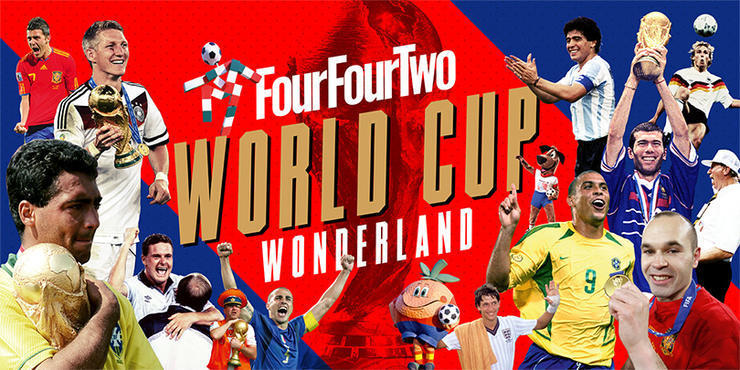
This feature originally appeared in the February 2018 issue of FourFourTwo. Subscribe!
